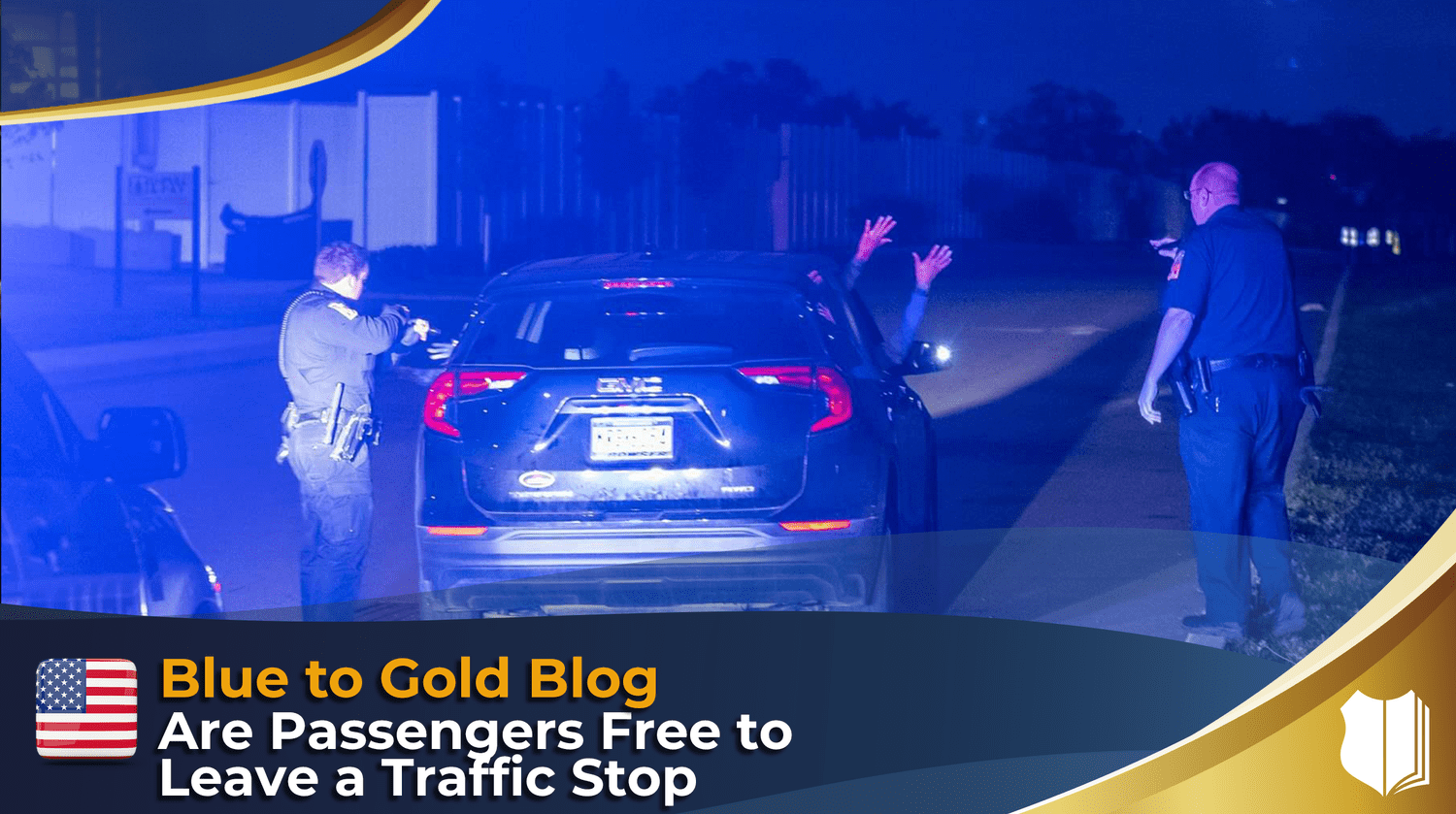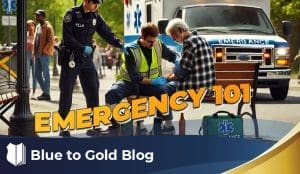The question that we have this time is: Are passengers free to leave a traffic stop?
The short answer is “NO.”
Here’s why.
The US Supreme Court has stated in a few decisions that passengers are seized under the Fourth Amendment when they are in a vehicle during a traffic stop.
So they are seized.
We also know from cases around the country that traffic stops are inherently dangerous. There is no explicit US Supreme Court case on this very issue, whether or not passengers can leave a traffic stop; we just know that they are seized.
But I think the logic extends to the fact that even if they want to leave and if the officer does not want them to leave, they are not free to leave.
Now, we do have a Seventh Circuit opinion on this issue. They did say that passengers are not free to leave. I do strongly believe that if this issue was addressed directly by the US Supreme Court, they would uphold seizing passengers until the traffic stop has been concluded. But we also have to remember that just because passengers are seized, it doesn’t really mean that they’re detained in a criminal sense.
When officers detain people, normally that means that they have reasonable suspicion that that person has committed a crime. That’s why I really liked the fact that the Supreme Court has used the word seized, not detained, because I believe there is a difference.
If officers request identification from the passenger, and the passenger has not done anything wrong, and they’re not associated with any criminal activity in the vehicle, (for example, the odor of burnt marijuana, open containers that they have access to, or something that would implicate the passenger in committing a crime); if that doesn’t exist. and if the traffic stop is for something like speeding, which is completely on the shoulders of the driver, then the cop can ASK the passenger for ID.
But can the officer demand it, and demand it with the repercussions that if they don’t provide it, they could be cited for obstruction or arrested for obstruction?
The answer is “NO.”
I do not believe the US Supreme Court would uphold demanding an ID on threat of arrest. For example, using police powers on a passenger who has done nothing wrong, except to be in a car with a driver who’s committing a traffic violation.
So there are two issues going on here. One, I do not believe passengers are free to leave during the encounter. They can be forced to stay. But if they have done nothing wrong, and all they’ve done is refuse to ID themselves, without anything more, I do not believe the officer can charge that person with obstruction, failure to ID and so forth. Because those laws are not really intended to force the the passenger to ID themselves without any criminal wrongdoing.
Now some states, like Louisiana, have laws in place that seem to be able to force the passenger to ID themselves. My recommendation is that hopefully you do that with a good case that means that there’s something else going on, but your vanilla stop where the person just simply wants to remain silent and be left alone by a police officer, I do not think that’s a good arrest. Ultimately, I think that would be overturned by the US Supreme Court.
I do try to teach officers to make good case law. You know, facts matter. Good facts make good law. Bad facts make bad law. I hope this helps. If you have any other questions do reach out to me at: bluetogold.com. I also have a book: “The Search and Seizure Survival Guide,” and I’m also looking for more agencies to host our training.











